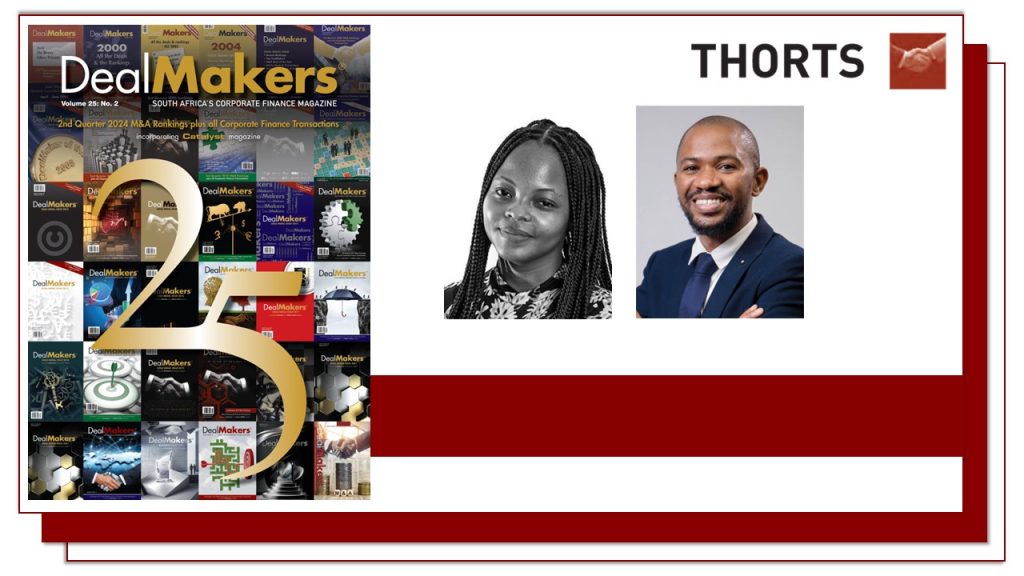“The 2030 Agenda for Sustainable Development1, adopted by all United Nations (UN) Member States in 2015, provides a shared blueprint for peace and prosperity for people and the planet, now and into the future. At its heart are the 17 Sustainable Development Goals (SDGs), which are an urgent call for action by all countries – developed and developing – in a global partnership. They recognise that ending poverty and other deprivations must go hand-in-hand with strategies that improve health and education, reduce inequality, and spur economic growth – all while tackling climate change and working to preserve our oceans and forests.”
This is the opening paragraph about SDGs on the UN’s website. What captures one here is the fact that social welfare and looking after the environment can go hand in hand with economic growth, which is exactly why SDG funding might be the next frontier for merger and acquisition (M&A) financing in South Africa.
Let us look at some of the benefits of Sustainable Development Funding:
- Low interest rates
Similar to an impact fund, a sustainable development fund’s mandate is to leave the world a better place; therefore, the interest asked on the capital deployed is very competitive – more than that of traditional banks and PE firms. Interest can be between five to 10 percent, with appetising incentives, such as the reduction of the interest when certain sustainable development goals are met. - Longer payment holidays
In the pursuit of reducing carbon emissions, projects usually targeted by sustainable development funds are often green energy projects. Most green energy projects are normally greenfield projects and, therefore, capital raised for these projects may enjoy longer payment holiday periods. The holiday ranges from 24 months to 60 months, depending on the project. This will assist the entity to invest their earnings back into the project, to improve the chances of success. - Incentives for repaying the funds quickly
Because sustainable development funds need to support as many projects as possible, recycling money as quickly as possible is imperative, which is why they offer an incentive to projects that can return the capital raised in a shorter period than agreed. Such incentives include reducing or removing the interest from the capital asked.
This type of funding removes the traditional capital raising barriers that banks and PE firms struggle with. With the Government of National Unity (GNU) now in place, it will be interesting to see how the Democratic Alliance (DA) will use this position to promote sustainable development goals without rattling the African National Congress (ANC)’s cage on redress policies such as Broad-Based Black Economic Empowerment (B-BBEE) and Affirmative Action. The DA has always hailed the narrative that sustainable development goals should replace redress policies, so perhaps the marriage between the two parties can produce a merged initiative to promote sustainable development goals and broad-based black economic empowerment alike.
Sustainable development funding can revolutionise the mergers and acquisitions landscape by aligning financial returns with positive social and environmental impacts. Integrating SDG funding into M&A strategies in South Africa can attract international investors seeking ethical investments, enhance corporate reputation, and foster long-term sustainability. Embracing SDG principles can drive innovation, create jobs, and build resilient communities, ultimately contributing to a more inclusive and prosperous economy.
1 https://sdgs.un.org/2030agenda
Thulisile Buthelezi serves as Secretary of the Policy & Research Committee and Provincial Chairperson (KZN) and Ayavuya Madolo is the National Deputy Chair | BMF Young Professionals.

This article first appeared in DealMakers, SA’s quarterly M&A publication.
DealMakers is SA’s M&A publication.
www.dealmakerssouthafrica.com




It’s great to see young adults doing what they love